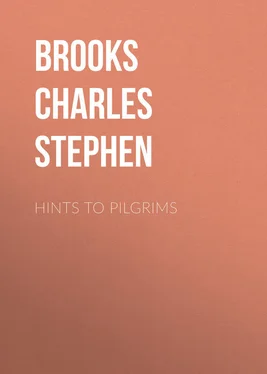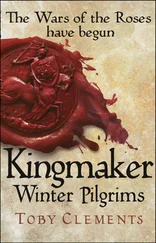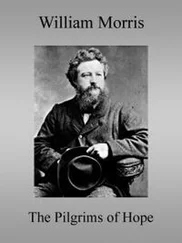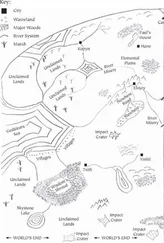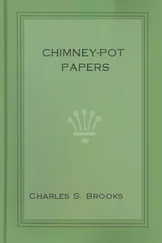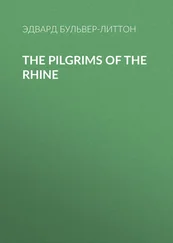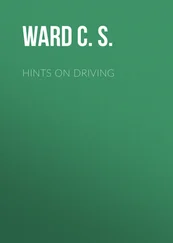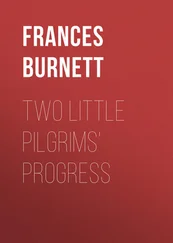Charles Brooks - Hints to Pilgrims
Здесь есть возможность читать онлайн «Charles Brooks - Hints to Pilgrims» — ознакомительный отрывок электронной книги совершенно бесплатно, а после прочтения отрывка купить полную версию. В некоторых случаях можно слушать аудио, скачать через торрент в формате fb2 и присутствует краткое содержание. Жанр: foreign_antique, foreign_prose, на английском языке. Описание произведения, (предисловие) а так же отзывы посетителей доступны на портале библиотеки ЛибКат.
- Название:Hints to Pilgrims
- Автор:
- Жанр:
- Год:неизвестен
- ISBN:нет данных
- Рейтинг книги:3 / 5. Голосов: 1
-
Избранное:Добавить в избранное
- Отзывы:
-
Ваша оценка:
- 60
- 1
- 2
- 3
- 4
- 5
Hints to Pilgrims: краткое содержание, описание и аннотация
Предлагаем к чтению аннотацию, описание, краткое содержание или предисловие (зависит от того, что написал сам автор книги «Hints to Pilgrims»). Если вы не нашли необходимую информацию о книге — напишите в комментариях, мы постараемся отыскать её.
Hints to Pilgrims — читать онлайн ознакомительный отрывок
Ниже представлен текст книги, разбитый по страницам. Система сохранения места последней прочитанной страницы, позволяет с удобством читать онлайн бесплатно книгу «Hints to Pilgrims», без необходимости каждый раз заново искать на чём Вы остановились. Поставьте закладку, и сможете в любой момент перейти на страницу, на которой закончили чтение.
Интервал:
Закладка:
But there are bookshops still in Charing Cross Road. And, for frivolous moments, haberdashery is offered in Bond Street and vaudeville in Leicester Square.
And then on a supreme morning we pack our rucksacks.
It was a grievous oversight that Christian failed to tell us what clothing he carried in his pack. We know it was a heavy burden, for it dragged him in the mire. But did he carry slippers to ease his feet at night? And what did the Pardoner put inside his wallet? Surely the Wife of Bath was supplied with a powder-puff and a fresh taffeta to wear at the journey's end. I could, indeed, spare Christian one or two of his encounters for knowledge of his wardrobe. These homely details are of interest. The mad Knight of La Mancha, we are told, mortgaged his house and laid out a pretty sum on extra shirts. Stevenson, also, tells us the exact gear that he loaded on his donkey, but what did Marco Polo carry? And Munchausen and the Wandering Jew? I have skimmed their pages vainly for a hint.
For myself, I shall take an extra suit of underwear and another flannel shirt, a pair of stockings, a rubber cape of lightest weight that falls below the knees, slippers, a shaving-kit and brushes. I shall wash my linen at night and hang it from my window, where it shall wave like an admiral's flag to show that I sleep upon the premises. I shall replace it as it wears. And I shall take a book, not to read but to have ready on the chance. I once carried the Book of Psalms, but it was Nick Carter I read, which I bought in a tavern parlor, fifteen pages missing, from a fat lady who served me beer.
We run to the window for a twentieth time. It has rained all night, but the man in the lift was hopeful when we came up from breakfast. We believe him; as if he sat on a tower with a spy-glass on the clouds. We cherish his tip as if it came from Æolus himself, holding the winds in leash.
And now a streak of yellowish sky – London's substitute for blue – shows in the west.
We pay our bill. We scatter the usual silver. Several senators in uniform bow us down the steps. We hale a bus in Trafalgar Square. We climb to the top – to the front seat with full prospect. The Haymarket. Sandwich men with weary step announce a vaudeville. We snap our fingers at so stale an entertainment. There are flower-girls in Piccadilly Circus. Regent Street. We pass the Marble Arch, near which cut-throats were once hanged on the three-legged mare of Tyburn. Hammersmith. Brentford. The bus stops. It is the end of the route. We have ridden out our sixpence. We climb down. We adjust our packs and shoe-strings. The road to the western country beckons.
My dear sir, perhaps you yourself have planned for a landaulet this summer and an English trip. You have laid out two swift weeks to make the breathless round. You journey from London to Bristol in a day. Another day, and you will climb out, stiff of leg, among the northern lakes. If then, as you loll among the cushions, lapped in luxury, pink and soft – if then, you see two men with sticks in hand and packs on shoulder, know them for ourselves. We are singing on the road to Windsor – to Salisbury, to Stonehenge, to the hills of Dorset, to Lyme-Regis, to Exeter and the Devon moors.
It was a shepherd who came with a song to the mountain-top. "The sun shone, the bees swept past me singing; and I too sang, shouted, World, world, I am coming!"
At a Toy-Shop Window
INthis Christmas season, when snowflakes fill the air and twilight is the pleasant thief of day, I sometimes pause at the window of a toy-shop to see what manner of toys are offered to the children. It is only five o'clock and yet the sky is dark. The night has come to town to do its shopping before the stores are shut. The wind has Christmas errands.
And there is a throng of other shoppers. Fathers of families drip with packages and puff after street cars. Fat ladies – Now then, all together! – are hoisted up. Old ladies are caught in revolving doors. And the relatives of Santa Claus – surely no nearer than nephews (anæmic fellows in faded red coats and cotton beards) – pound their kettles for an offering toward a Christmas dinner for the poor.
But, also, little children flatten their noses on the window of the toy-shop. They point their thumbs through their woolly mittens in a sharp rivalry of choice. Their unspent nickels itch for large investment. Extravagant dimes bounce around their pockets. But their ears are cold, and they jiggle on one leg against a frosty toe.
Here in the toy-shop is a tin motor-car. Here is a railroad train, with tracks and curves and switches, a pasteboard mountain and a tunnel. Here is a steamboat. With a turning of a key it starts for Honolulu behind the sofa. The stormy Straits of Madagascar lie along the narrow hall. Here in the window, also, are beams and girders for a tower. Not since the days of Babel has such a vast supply been gathered. And there are battleships and swift destroyers and guns and armoured tanks. The nursery becomes a dangerous ocean, with submarines beneath the stairs: or it is the plain of Flanders and the great war echoes across the hearth. Château-Thierry is a pattern in the rug and the andirons are the towers of threatened Paris.
But on this Christmas night, as I stand before the toy-shop in the whirling storm, the wind brings me the laughter of far-off children. Time draws back its sober curtain. The snow of thirty winters is piled in my darkened memory, but I hear shrill voices across the night.
Once upon a time – in the days when noses and tables were almost on a level, and manhood had wavered from kilts to pants buttoning at the side – once there was a great chest which was lodged in a closet behind a sitting-room. It was from this closet that the shadows came at night, although at noon there was plainly a row of hooks with comfortable winter garments. And there were drawers and shelves to the ceiling where linen was kept, and a cupboard for cough-syrup and oily lotions for chapped hands. A fragrant paste, also, was spread on the tip of the little finger, which, when wiggled inside the nostril and inhaled, was good for wet feet and snuffles. Twice a year these bottles were smelled all round and half of them discarded. It was the ragman who bought them, a penny to the bottle. He coveted chiefly, however, lead and iron, and he thrilled to old piping as another man thrills to Brahms. He was a sly fellow and, unless Annie looked sharp, he put his knee against the scale.
But at the rear of the closet, beyond the lamplight, there was a chest where playing-blocks were kept. There were a dozen broken sets of various shapes and sizes – the deposit and remnant of many years.
These blocks had once been covered with letters and pictures. They had conspired to teach us. C had stood for cat. D announced a dog. Learning had put on, as it were, a sugar coat for pleasant swallowing. The arid heights teased us to mount by an easy slope. But we scraped away the letters and the pictures. Should a holiday, we thought, be ruined by insidious instruction? Must a teacher's wagging finger always come among us? It was sufficient that five blocks end to end made a railway car, with finger-blocks for platforms; that three blocks were an engine, with a block on top to be a smokestack. We had no toy mountain and pasteboard tunnel, as in the soft fashion of the present, but we jacked the rug with blocks up hill and down, and pushed our clanking trains through the hollow underneath. It was an added touch to build a castle on the summit. A spool on a finger-block was the Duke himself on horseback, hunting across his sloping acres.
There was, also, in the chest, a remnant of iron coal-cars with real wheels. Their use was too apparent. A best invention was to turn playthings from an obvious design. So we placed one of the coal-cars under the half of a folding checkerboard and by adding masts and turrets and spools for guns we built a battleship. This could be sailed all round the room, on smooth seas where the floor was bare, but it pitched and tossed upon a carpet. If it came to port battered by the storm, should it be condemned like a ship that is broken on a sunny river? Its plates and rivets had been tested in a tempest. It had skirted the headlands at the staircase and passed the windy Horn.
Читать дальшеИнтервал:
Закладка:
Похожие книги на «Hints to Pilgrims»
Представляем Вашему вниманию похожие книги на «Hints to Pilgrims» списком для выбора. Мы отобрали схожую по названию и смыслу литературу в надежде предоставить читателям больше вариантов отыскать новые, интересные, ещё непрочитанные произведения.
Обсуждение, отзывы о книге «Hints to Pilgrims» и просто собственные мнения читателей. Оставьте ваши комментарии, напишите, что Вы думаете о произведении, его смысле или главных героях. Укажите что конкретно понравилось, а что нет, и почему Вы так считаете.
